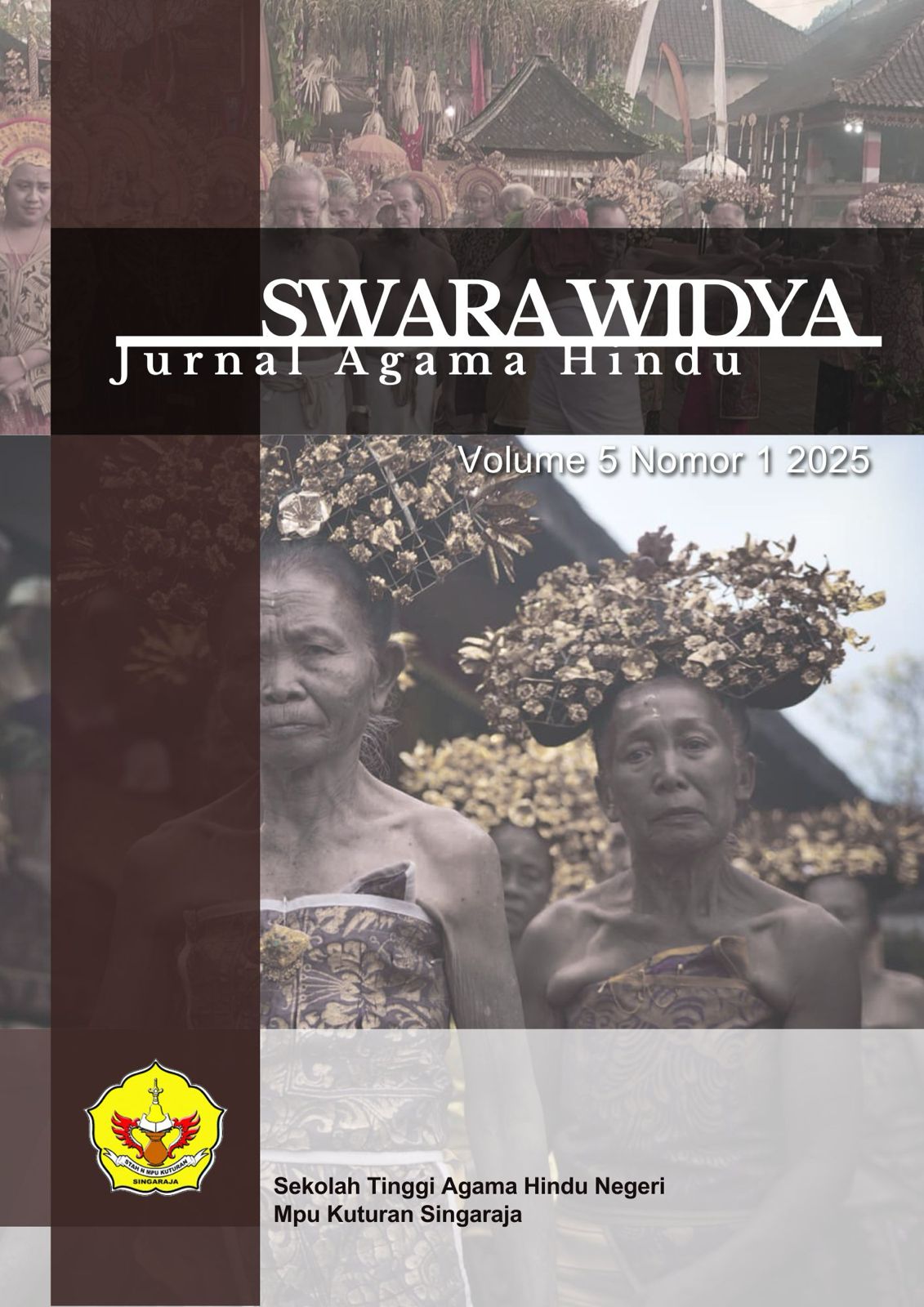TANTANGAN DALAM MEREALISASIKAN AJARAN ASTA BRATA DALAM KONTEKS KEPEMIMPINAN SAAT INI
Keywords:
Asta Brata, Hindu Leadership, Leadership Ethics, Modern LeadershipAbstract
teachings, through the concept of Asta Brata, offer eight noble principles of ideal leadership rooted in universal values. However, modern leadership practices often deviate from these values, raising questions about the relevance of Asta Brata in the contemporary era. This article aims to deeply examine the concept of leadership within Asta Brata and provide an argumentative response to ideological critiques that question its relevance in the present context. Employing a qualitative approach with a literature review method, this research analyzes the principles of Asta Brata and evaluates their potential to contribute to shaping leadership with integrity amidst modern challenges. The analysis findings indicate that the values of Asta Brata remain relevant if interpreted contextually, rather than textually. These teachings do not function as a tool for legitimizing absolute power but rather as a guide for leadership ethics that emphasizes moral and social responsibility. Furthermore, Asta Brata, as local wisdom, is an important part of national identity that can enrich the discourse of modern leadership. This article concludes that Asta Brata offers a valuable perspective in building ethical and collectively welfare- oriented leadership.

